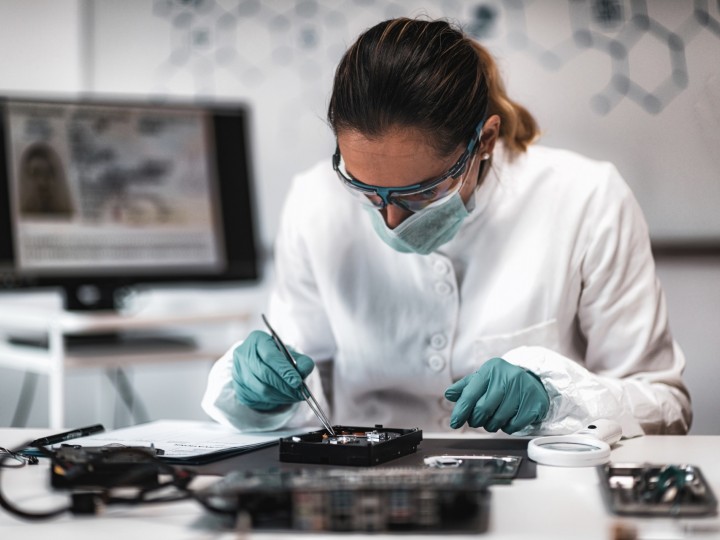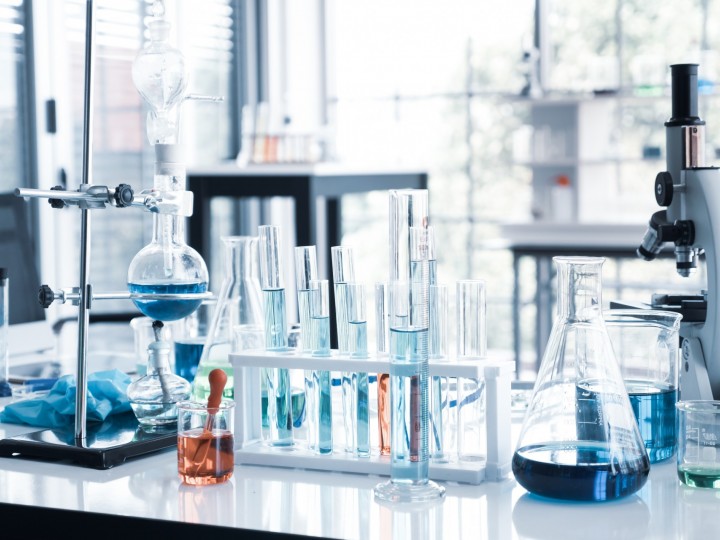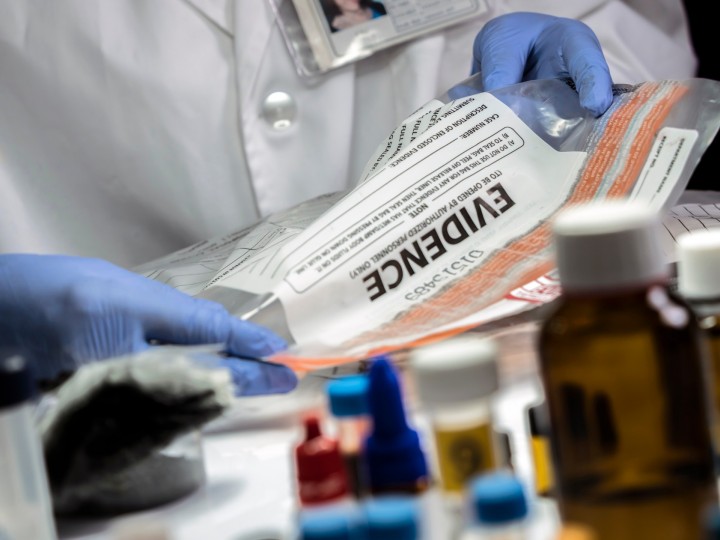
Forensic Science Degree Overview
The Bachelor of Science degree in Forensic Science at Albany College of Pharmacy and Health Sciences is a comprehensive program that covers biology, chemistry and forensic-related topics. It enables you to develop a strong scientific foundation to pursue a career in forensics.
Students are equipped with the skills and knowledge needed to secure entry-level positions in forensic science laboratories. Students can also choose to pursue graduate programs in one of the forensic science specialties or a professional degree program like law school to further their education. Students will have a dedicated advisor to help guide them through their educational journey at ACPHS.
You can also be part of Delta Delta Epsilon, a forensic science honor society, that recognizes and honors high-achieving forensic science majors.
Students are equipped with the skills and knowledge needed to secure entry-level positions in forensic science laboratories. Students can also choose to pursue graduate programs in one of the forensic science specialties or a professional degree program like law school to further their education. Students will have a dedicated advisor to help guide them through their educational journey at ACPHS.
You can also be part of Delta Delta Epsilon, a forensic science honor society, that recognizes and honors high-achieving forensic science majors.

Make Professional Connections in the Forensic Science Program
Through a partnership with the New York State Police Crime Laboratory System, the Forensic Investigative Curriculum Program (FIC School) offers students a unique opportunity to explore the field of forensic science. The program provides students with a real-world experience by connecting them with forensic professionals from the New York State Police Crime Laboratory System. Students can learn directly from their mentors and gain insights into what a career in forensic science entails. In addition, they can visit the NYSP Forensic Investigation Center in Albany and get a tour of its facilities.

Jobs Requiring a Bachelor of Forensic Science Degree
A bachelor’s degree in forensic science is a great way to start your career in forensic science. Our program provides graduates with the necessary skills to become forensic science technicians, an umbrella term for many different positions including scientists who work in a crime lab or crime scene investigators who gather evidence at a crime scene. Other job titles you may find in this field are Forensic Scientist, Criminalist, Crime Lab Analyst, or Crime Lab Technician. All these positions share a common theme – they involve the examination of physical evidence to help law enforcement solve crimes. Interested in ballistics? How about DNA analysis? Maybe toxicology or trace evidence analysis is more your style? You can get there from here.
According to the U.S. Bureau of Labor Statistics, the demand for forensic science technicians is expected to grow at a rate of 18% between 2020 and 2030, which is much faster than the average for all professions. In New York, the mean salary for a forensic science technician is $81,370, which is one of the highest salaries in this field across the country.
According to the U.S. Bureau of Labor Statistics, the demand for forensic science technicians is expected to grow at a rate of 18% between 2020 and 2030, which is much faster than the average for all professions. In New York, the mean salary for a forensic science technician is $81,370, which is one of the highest salaries in this field across the country.

Forensic Science Degree Coursework
All students must integrate theoretical knowledge, laboratory skills and scientific reasoning, critical thinking and communication skills. They are expected to:
• Demonstrate a comprehensive understanding of both traditional and emerging forensic science disciplines and their related fields
• Individuals will use scientific literature to gather, interpret and apply forensic science-related information. They will apply their knowledge to solve complex problems and communicate scientific information effectively in a variety of media formats.
• Demonstrate ethical standards, integrity, professionalism, creative thinking, leadership, and teamwork, which are the intra- and interpersonal skills required for forensic science professionals.
• Demonstrate a comprehensive understanding of both traditional and emerging forensic science disciplines and their related fields
• Individuals will use scientific literature to gather, interpret and apply forensic science-related information. They will apply their knowledge to solve complex problems and communicate scientific information effectively in a variety of media formats.
• Demonstrate ethical standards, integrity, professionalism, creative thinking, leadership, and teamwork, which are the intra- and interpersonal skills required for forensic science professionals.
Contact the Program Director
Sara Alvaro
Associate Professor
sara.alvaro@acphs.edu
518-694-7308
Associate Professor
sara.alvaro@acphs.edu
518-694-7308
Contact the Admissions Office
106 New Scotland Ave
Albany, NY 12208
admissions@acphs.edu
518-694-7221
Albany, NY 12208
admissions@acphs.edu
518-694-7221

